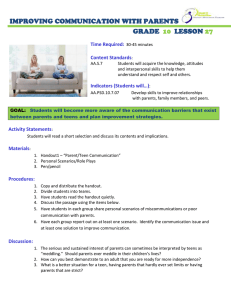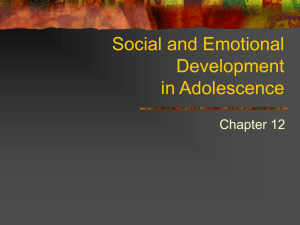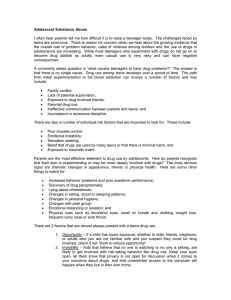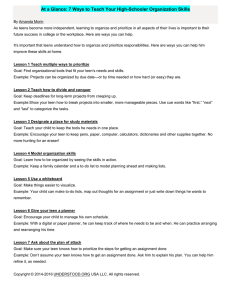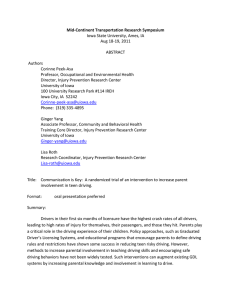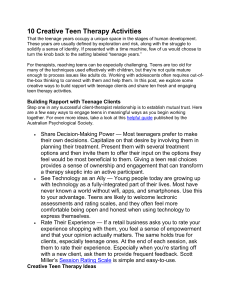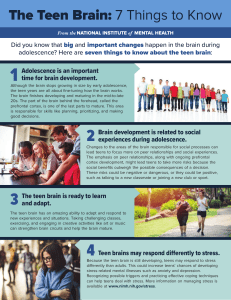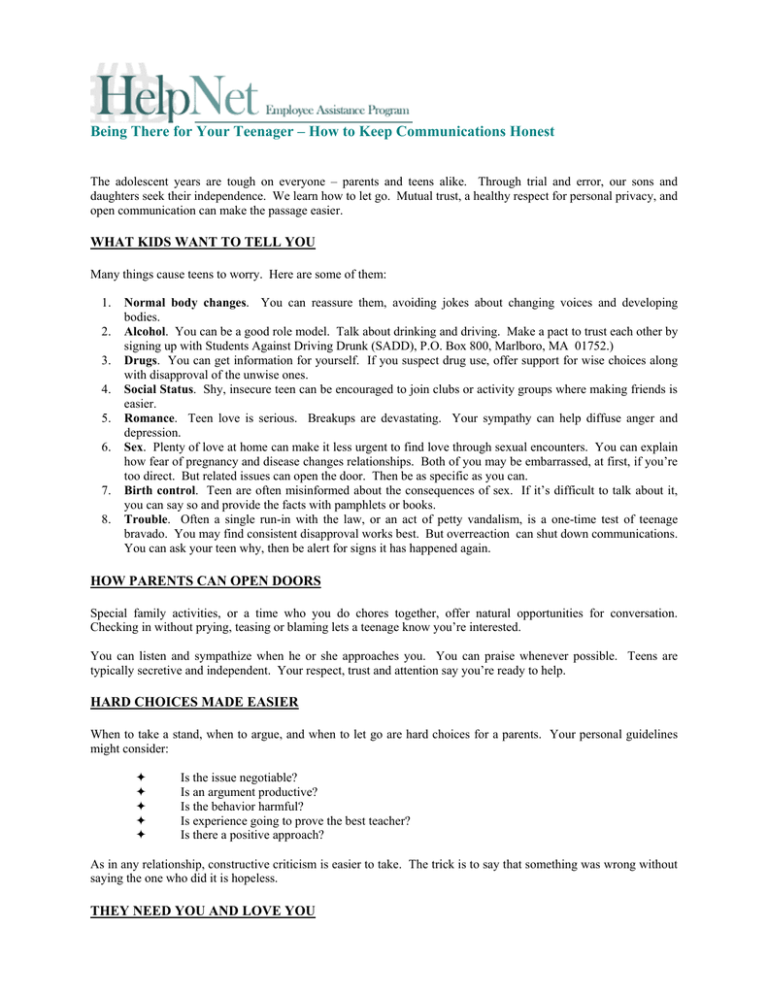
Being There for Your Teenager – How to Keep Communications Honest
The adolescent years are tough on everyone – parents and teens alike. Through trial and error, our sons and
daughters seek their independence. We learn how to let go. Mutual trust, a healthy respect for personal privacy, and
open communication can make the passage easier.
WHAT KIDS WANT TO TELL YOU
Many things cause teens to worry. Here are some of them:
1.
2.
3.
4.
5.
6.
7.
8.
Normal body changes. You can reassure them, avoiding jokes about changing voices and developing
bodies.
Alcohol. You can be a good role model. Talk about drinking and driving. Make a pact to trust each other by
signing up with Students Against Driving Drunk (SADD), P.O. Box 800, Marlboro, MA 01752.)
Drugs. You can get information for yourself. If you suspect drug use, offer support for wise choices along
with disapproval of the unwise ones.
Social Status. Shy, insecure teen can be encouraged to join clubs or activity groups where making friends is
easier.
Romance. Teen love is serious. Breakups are devastating. Your sympathy can help diffuse anger and
depression.
Sex. Plenty of love at home can make it less urgent to find love through sexual encounters. You can explain
how fear of pregnancy and disease changes relationships. Both of you may be embarrassed, at first, if you’re
too direct. But related issues can open the door. Then be as specific as you can.
Birth control. Teen are often misinformed about the consequences of sex. If it’s difficult to talk about it,
you can say so and provide the facts with pamphlets or books.
Trouble. Often a single run-in with the law, or an act of petty vandalism, is a one-time test of teenage
bravado. You may find consistent disapproval works best. But overreaction can shut down communications.
You can ask your teen why, then be alert for signs it has happened again.
HOW PARENTS CAN OPEN DOORS
Special family activities, or a time who you do chores together, offer natural opportunities for conversation.
Checking in without prying, teasing or blaming lets a teenage know you’re interested.
You can listen and sympathize when he or she approaches you. You can praise whenever possible. Teens are
typically secretive and independent. Your respect, trust and attention say you’re ready to help.
HARD CHOICES MADE EASIER
When to take a stand, when to argue, and when to let go are hard choices for a parents. Your personal guidelines
might consider:
Ø
Ø
Ø
Ø
Ø
Is the issue negotiable?
Is an argument productive?
Is the behavior harmful?
Is experience going to prove the best teacher?
Is there a positive approach?
As in any relationship, constructive criticism is easier to take. The trick is to say that something was wrong without
saying the one who did it is hopeless.
THEY NEED YOU AND LOVE YOU


